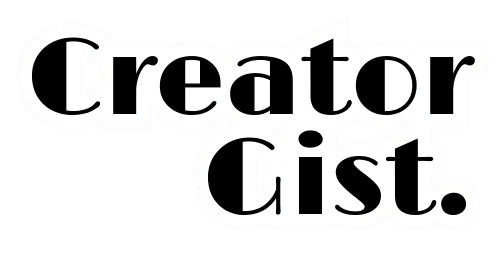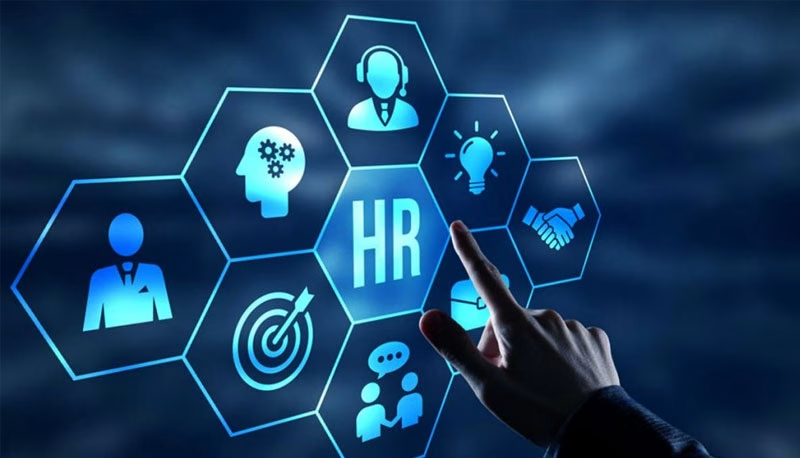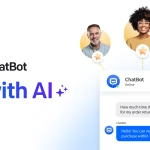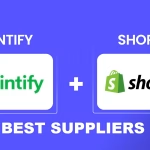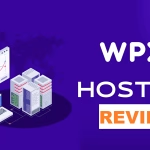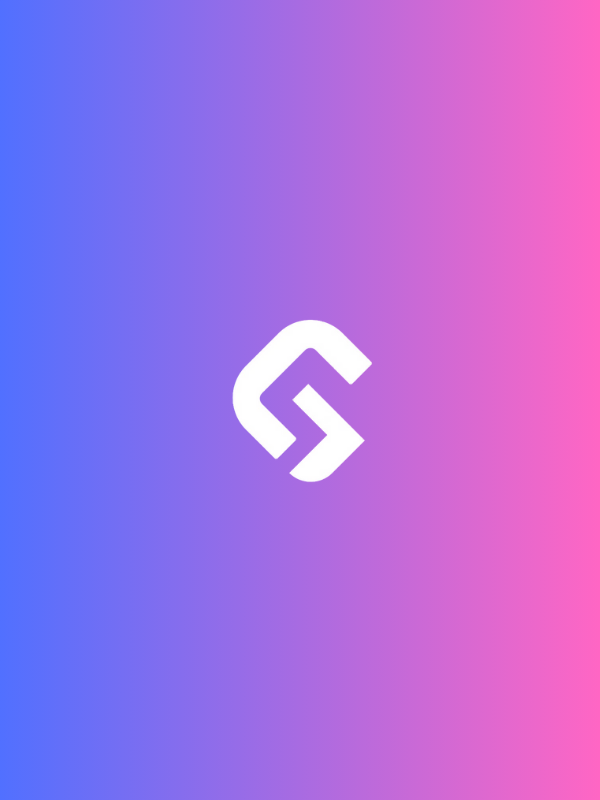HR management is no longer about endless spreadsheets and manual data entry — it’s about smart automation and strategic decision-making. The secret? Implementing the best AI tools for HR management.
These advanced solutions are transforming how businesses recruit talent, engage employees, and streamline workflows. If you want to stay competitive in 2025, adopting AI-powered HR tools isn’t just an option — it’s a necessity.
Let’s explore the top AI solutions that are reshaping the future of human resources.
Why Consider AI for HR Management?
Listen, I was skeptical at first (who wasn’t?). But after implementing AI solutions in our department, we saw:
- 40% reduction in time-to-hire
- 65% decrease in administrative tasks
- 85% improvement in employee query response time
- 50% better accuracy in performance evaluations
Top 7 Best AI Tools for HR Management
1. Workday HCM
Best for: Enterprise-level HR management and employee experience
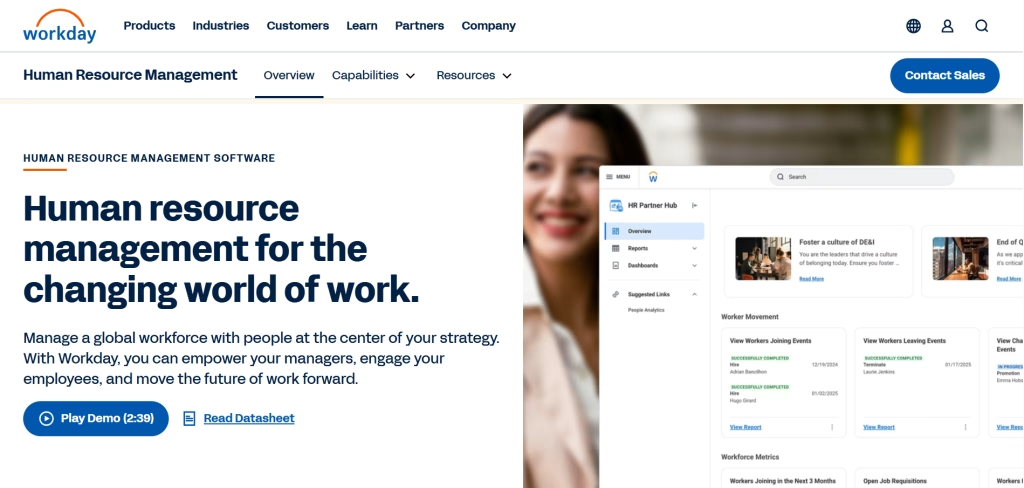
When we first implemented Workday, I thought it would take months to get everyone on board. Surprise! The AI-powered interface was so intuitive that even our most tech-resistant team members were using it within weeks.
Key Features:
- AI-driven recruitment and onboarding
- Predictive analytics for workforce planning
- Machine learning for skills mapping
- Automated performance review scheduling
- Employee sentiment analysis
Pricing: Custom pricing based on company size
2. BambooHR + AI Assistant
Best for: Small to medium-sized businesses seeking automation
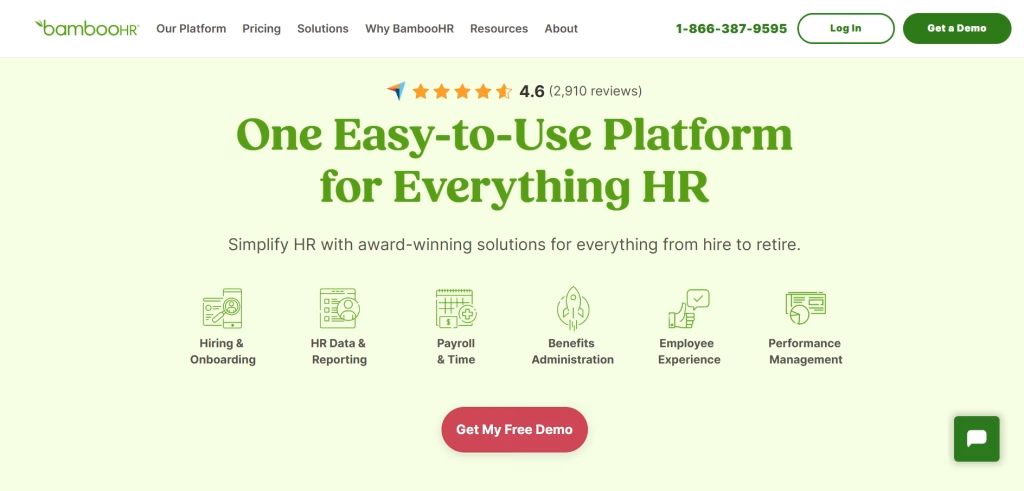
This platform saved my sanity during our company’s growth phase. The AI assistant handles everything from answering basic employee questions to predicting turnover risks.
Key Features:
- Automated onboarding workflows
- Time-off management
- Performance management
- Employee self-service portal
- AI-powered analytics dashboard
Pricing: Professional plan starts at $9.00/employee/month
3. Eightfold AI
Best for: Advanced recruitment and talent management
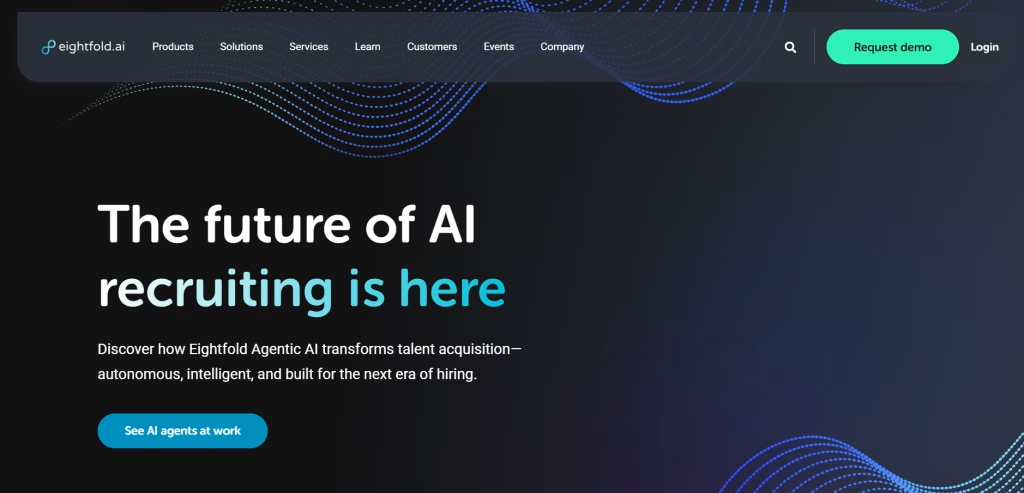
Key Features:
- AI-powered candidate matching
- Career pathing recommendations
- Skills-based workforce planning
- Internal mobility optimization
- Diversity and inclusion insights
Pricing: Custom pricing based on features
4. Darwinbox
Best for: Creating personalized employee experiences
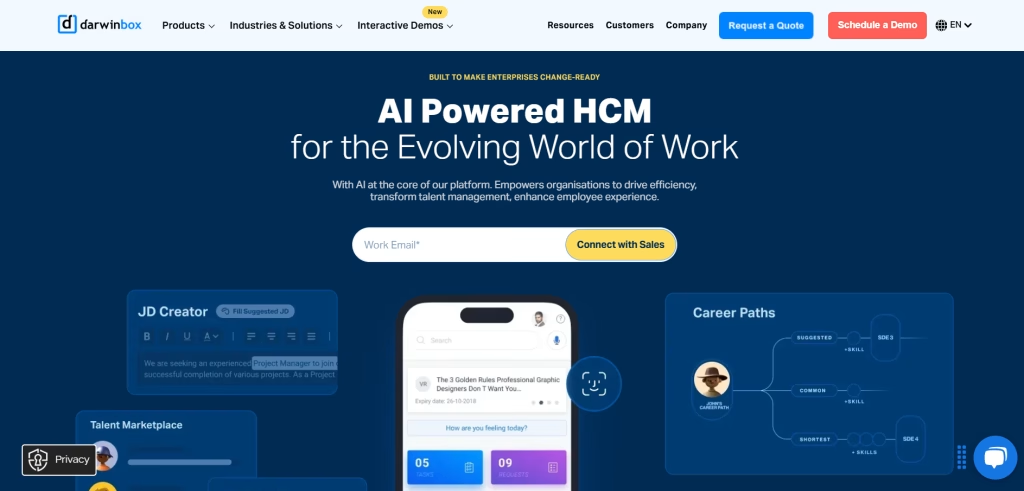
We implemented this in our APAC offices last year, and the difference in employee engagement was night and day!
Key Features:
- AI-driven employee engagement
- Performance management
- Learning management system
- Succession planning
- Mobile-first approach
Pricing: Based on modules selected and company size
5. HiredScore (Acquired By Workday)
Best for: Large-scale recruitment optimization
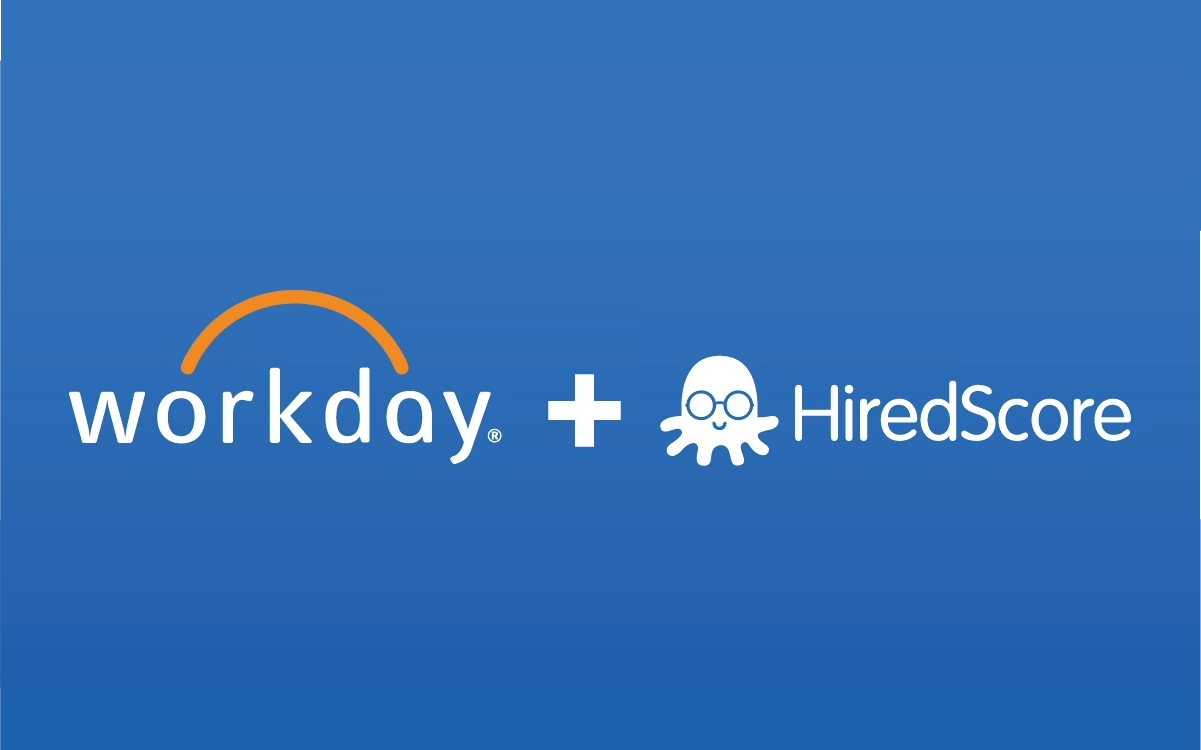
Key Features:
- AI-powered candidate screening
- Automated workflow management
- Compliance monitoring
- Internal mobility matching
- Recruitment analytics
Pricing: Enterprise pricing available upon request
6. Lattice
Best for: Continuous performance management and engagement
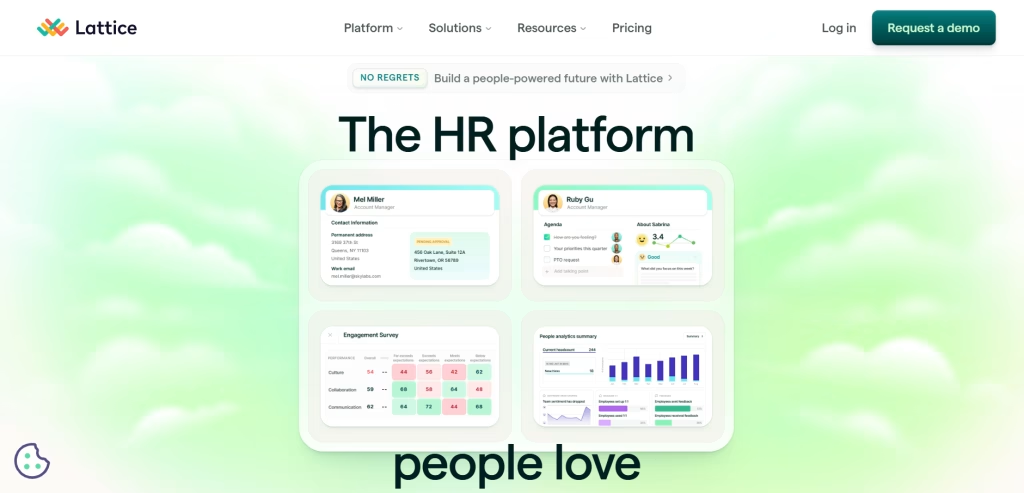
The amount of time this tool saves during review seasons is incredible. What used to take weeks now takes days!
Key Features:
- Real-time feedback loops
- Goal tracking and alignment
- Employee engagement surveys
- Performance analytics
- 1-on-1 meeting management
Pricing: From $11/user/month
7. isolved
Best for: Integrated payroll and benefits administration
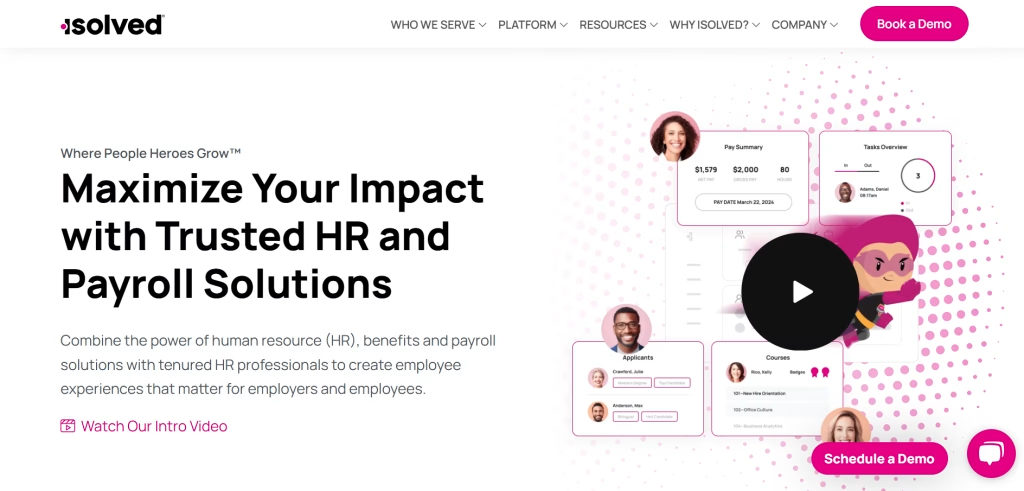
Key Features:
- AI-driven payroll processing
- Benefits administration
- Time and attendance tracking
- Tax compliance automation
- Employee self-service portal
Pricing: Custom pricing based on features and company size
Implementation Tips from the Trenches
- Start Small Don’t try to implement everything at once. We started with the recruitment module and gradually expanded – saved us tons of headaches!
- Train the Trainers Identify tech-savvy employees in each department to become system champions. Trust me, peer-to-peer learning is powerful!
- Data Migration Strategy Take time to clean your data before migration. We spent two extra weeks on this, and it was worth every minute.
Common Challenges and Solutions
Challenge 1: Employee Resistance
Solution: Create a comprehensive change management plan. We used a buddy system where tech-savvy employees helped others adapt.
Challenge 2: Data Quality
Solution: Implement data validation rules and regular audits. Schedule quarterly data cleaning sessions.
Challenge 3: Integration Issues
Solution: Start with core systems and gradually expand. We created a phased integration roadmap over 18 months.
Best Practices for Success
- Regular System Audits Schedule monthly check-ins to ensure the AI is performing as expected.
- Feedback Loops: Create channels for employees to share their experiences and suggestions.
- Continuous Learning Keep up with system updates and new features. We have monthly lunch-and-learn sessions.
Conclusion
Embracing the best AI tools for HR management isn’t just about automating tasks — it’s about unlocking time for more meaningful human interactions.
By streamlining recruitment, employee engagement, and data-driven decision-making, these tools empower HR professionals to move beyond administrative work and become strategic partners in their organization’s growth. The future of HR is here — are you ready to leverage AI to drive your team forward?
FAQs
1. What are AI tools for HR management?
AI tools for HR management are software solutions powered by artificial intelligence that automate and enhance human resource tasks. These tools assist with recruitment, employee engagement, performance tracking, and data analysis, making HR processes more efficient and data-driven.
2. How do AI tools benefit HR management?
The best AI tools for HR management streamline repetitive tasks, improve talent acquisition, boost employee retention, and provide real-time insights. This allows HR professionals to focus on strategic decision-making and fostering workplace culture.
3. What are the best AI tools for HR management in 2025?
In 2025, the best AI tools for HR management include platforms for AI-powered recruitment, chatbots for employee support, predictive analytics for workforce planning, and personalized employee development systems. These tools optimize HR workflows and drive business growth.
4. Can AI tools replace human HR professionals?
No, AI tools for HR management are designed to support—not replace—HR professionals. While AI handles data processing and automation, human expertise remains crucial for decision-making, employee relations, and strategic planning.
5. How do AI tools improve recruitment processes?
AI tools for HR management enhance recruitment by automating resume screening, using predictive analytics to identify top candidates, and personalizing communication. This speeds up hiring, reduces bias, and improves the candidate experience.
6. Are AI tools for HR management expensive?
AI tools for HR management come with various pricing options. Many platforms offer scalable plans, making them accessible for both small businesses and large enterprises. It’s important to choose tools that fit your budget and HR needs.
7. Can AI tools boost employee engagement?
Yes! AI tools for HR management help boost employee engagement by analyzing feedback, personalizing training programs, and providing real-time performance insights. This creates a more responsive and motivating work environment.
8. How secure are AI-powered HR tools?
The best AI tools for HR management prioritize data security through encryption, access controls, and compliance with regulations like GDPR. Ensuring the platform follows industry security standards is key to protecting employee data.
9. What should I look for when choosing AI tools for HR?
When choosing AI tools for HR management, look for features like automation, predictive analytics, user-friendly interfaces, seamless software integration, and customizable reporting. The right tool should align with your company’s goals.
10. How can I implement AI tools in my HR department?
To implement AI tools for HR management, start by identifying repetitive tasks, choosing AI solutions that address your pain points, training your team, and gradually integrating the tools into your workflows. This ensures a smooth transition and maximizes ROI.
Remember, the goal of AI in HR isn’t to replace the human touch – it’s to enhance it. Choose tools that align with your company culture and give your HR team the time to focus on what matters most: your people!
